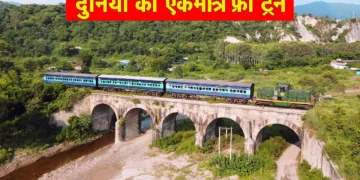Expansion of Indian Railways
Indian Railways is undergoing rapid expansion with the introduction of various high-speed trains, including the popular Vande Bharat Express. Following the success of trains like Rajdhani, Shatabdi, and Tejas, the railway network is also advancing towards future technologies, including the construction of bullet trains. In a significant development, Indian Railways plans to launch its first hydrogen train, with expectations for a trial run by the end of this year and a full operation scheduled for 2024-25.
Trial and Implementation of Hydrogen Trains
The first hydrogen train in India is set to operate on the Jind-Sonipat section in Haryana under the Northern Railway Zone. To ensure safety, the German company TUV-SUD has been contracted for a third-party safety audit. The anticipated trial run is likely to begin in December 2024, paving the way for the official launch of the hydrogen train in the subsequent year.
Environmental Impact and Route Plans
The introduction of hydrogen trains aligns with Indian Railways’ goal of achieving ‘Net Zero Carbon Emitter’ status by 2030. The project, named ‘Hydrogen for Heritage,’ aims to deploy 35 hydrogen trains across various routes, including the Darjeeling Himalayan Railway and Nilgiri Mountain Railway. These trains utilize hydrogen fuel cells to generate electricity, emitting no harmful pollutants. With a speed capability of 140 km/h and a range of up to 1000 km, initial operations will be on a smaller scale, with potential for expansion in the future.
Important Information Organised For You.
| Information | Details |
|---|---|
Train Type |
Hydrogen Train |
Trial Run Start Date |
December 2024 |
Expected Operational Year |
2024-25 |
Initial Route |
Jind-Sonipat (Haryana) |
Other Potential Routes |
Darjeeling Himalayan Railway, Nilgiri Mountain Railway, Kalka Shimla Railway, Matheran Railway, Kangra Valley, Bilmora Waghai, Marwar-Devgarh Madaria |
Speed |
140 km/h |
Range |
Up to 1000 km |
Project Name |
Hydrogen for Heritage |
Environmental Goal |
Net Zero Carbon Emitter by 2030 |
Fuel Type |
Hydrogen Fuel Cells |
Emissions |
No carbon dioxide, nitrogen, or particulate matter |
Cost Comparison |
More expensive than diesel trains |
